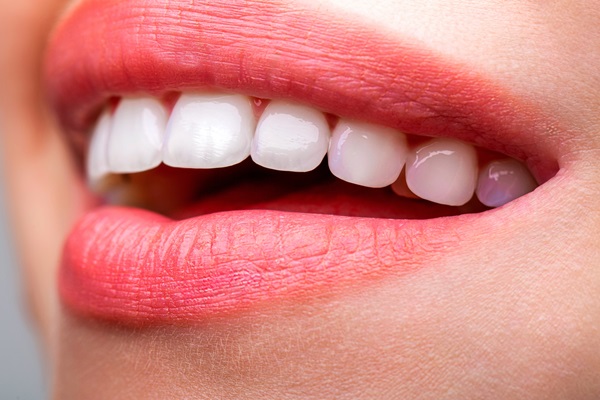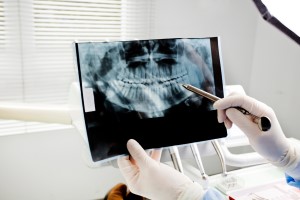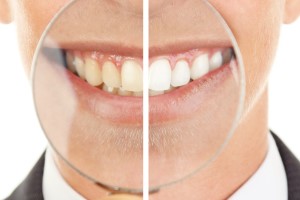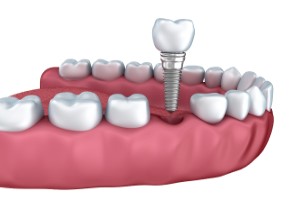A General Dentist Can Use Bonding to Repair Teeth

General dentists use bonding to help repair damaged teeth. What is bonding, and how is it used to repair teeth? Keep reading for an overview of what bonding is and why it is used as a treatment method.
This type of procedure is very useful for many different dental issues. Your dentist will be able to provide you with options for your specific situation, and tooth bonding may come up as one of the options more times than you may think.
What is tooth bonding?
In dentistry, bonding is a procedure in which a resin material is applied to the teeth to help repair the tooth. The resin, composed of a sort of plastic material, is hardened using a special light. The final result is the special material that has been bound to the tooth, thus helping restore the tooth and the patient's smile.
When is tooth bonding necessary?
Dental bonding may be used in several different situations, whether to improve the patient's smile or restore the tooth. Common uses for bonding include:
- Reparation of decayed teeth
- Reparation of cracked or chipped teeth
- Adjust the shape of the teeth, possibly to look longer
- Close gaps between teeth
- Protect areas of the tooth root exposed by gum recession
Teeth bonding is a relatively simple and inexpensive cosmetic dental procedure. The process can typically be completed in a single office visit providing there is only one tooth involved. This procedure does not remove as much of the tooth's enamel as other procedures, which is the natural protector of the tooth.
What to expect from the teeth bonding process?
Since teeth bonding is relatively simple, there is very little preparation necessary before the procedure. Anesthesia is usually not needed, but in cases where the bonding material is filling a decayed tooth, it may be needed if the tooth will need to be drilled.
The bonding process itself starts with the dentist roughing the tooth's surface. They will then apply a conditioning liquid, which helps the material attach to the tooth. The resin, which is colored to mimic the rest of the teeth, is applied and shaped to achieve the desired appearance.
The material will be given time to harden; then, the dentist will continue shaping the material and finish off with a polish. The process can take between thirty to sixty minutes to complete for each tooth.
Aftercare for bonded teeth
Dental bonding usually needs to be replaced roughly every five to ten years, although it does vary from case to case. Ensuring you take proper care of your teeth will help lengthen the lifespan of the bonded tooth.
As normal, you should be brushing at least twice per day and flossing once per day. Avoid hard foods and candies and habits such as biting your nails, which can chip or break the bonding materials.
Coffee, tea, and tobacco can stain the material, so you should avoid consuming or using these products for at least the first two days following the procedure.
It is important to see a general dentist on a routine schedule for upkeep and care of your teeth, including your dental bonding. If you notice any rough or sharp edges after the procedure, reach out to your dentist, and they will help smoothen or fix the issue.
Your dentist can help
Your general dentist is the best person to ask when you have questions or concerns about your dental health. They know your oral history best and can provide you with alternatives and options to any oral issue you may be having.
It is also good to call your dental insurance carrier and ask how much any procedure, such as tooth bonding, will cost you. In most cases, this is seen as preventative care, and you should be able to have the procedure with little cost to you. However, every insurance policy is different depending on your specific contract.
Feel free to ask your dental office to help you provide the dental carrier with the most specific facts and terminology so you can get the most reliable answer on pricing.
Remember to see your dentist regularly and take their advice when they recommend any type of dental treatment to you. You want to keep your teeth healthy and your smile inviting for all those around you. Don't put off dental treatment. You will benefit in the long run.
Request an appointment here: https://jacksonheightdental.com or call 82nd St. Dental at (718) 476-5555 for an appointment in our Jackson Heights office.
Check out what others are saying about our dental services on Yelp: Dental Bonding in Jackson Heights, NY.
Recent Posts
Dental bonding is one of the most versatile and minimally invasive restorative and cosmetic dental procedures. Dental bonding is the go-to procedure for many patients looking to fix imperfections or enhance their smile, from enhancing the appearance and shape of teeth to repairing damaged enamel. Whether you are new to cosmetic dentistry or considering touch-ups…
If you are looking to make improvements to your smile, you may want to consider dental bonding. This cosmetic dentistry procedure uses a composite resin material to make repairs to teeth and enhance the appearance of a person's smile. Bonding can be used to correct various cosmetic issues, including chips, gaps, discoloration, and even misshapen…
Wondering if cosmetic dental bonding is the ideal solution for repairing your damaged enamel? Tooth enamel refers to the super thin yet super strong outer covering of a tooth. Even though enamel is the hardest tissue found in the human body, it is possible for it to become damaged. Since the enamel is specifically there…
No prep veneers are shells that cover the front of the teeth. A cosmetic dentist near you will use these veneers to hide a variety of cosmetic issues. However, no prep veneers are not your only option for fixing cosmetic issues. You can also choose crowns or whitening procedures to improve your smile.While a veneer…






